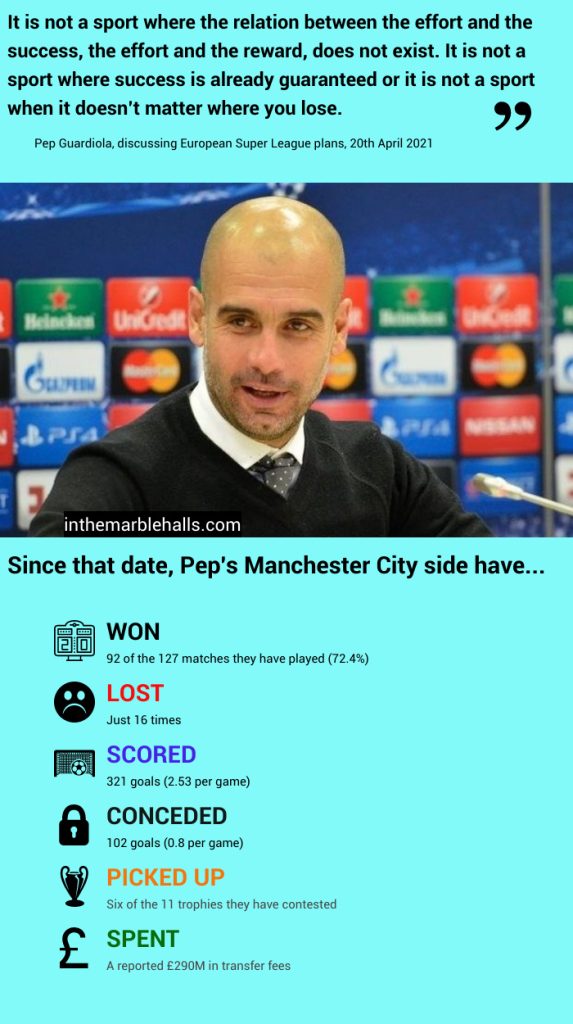The brief two day window between the initial announcement of plans for twelve of Europe’s top football clubs to form a new European Super League and the plan’s ignominious collapse was filled by many voices of criticism of the proposal. Many chose to follow Gary Neville’s lead in focussing on the material motivations behind the plans, accusing those involved of a power grab based on “pure greed”, of simply trying to get an even bigger share of football’s pie. But, within the criticisms, there was also a strong thread of appeal to the ideals represented by sport, of a system determined by merit, where any fan could aspire to the idea that their team might rise up to the rarefied heights of success. The main crime of the ESL proposers, then, was their attempt to sever the formal connection between outcomes and performance, granting the founding members access to the new league’s bounty irrespective of where they ended up within existing domestic league structures.
A particularly strong variant of this line of critique was expressed by Manchester City manager, Pep Guardiola, someone whose default mode in discussion of football seems to be of a pursuit of ideals. Guardiola stressed the idea of wins and losses coming according to a team’s own merits as being at the essence of sport itself, claiming that it is “not a sport where the relation between the effort and the success, the effort and the reward, does not exist. It is not a sport where success is already guaranteed”. Or, summarising the position, “it is not a sport when it doesn’t matter when you lose” (a number of headline writers slightly tightened the syntax to the more pithy version you find me using in this post’s title).
I think there is something important captured within this framing of what sport is, which I will expand upon in a future post.
But for now, let’s just note something about the performance of Manchester City, and more broadly about the teams at the heart of the ESL proposal’s since Guardiola made those comments.

In the subsequent period (the end of one season, followed by two complete seasons), City have lost just 16 games and have picked up six trophies.
The twelve teams involved in the ESL proposals have, meanwhile, since then:
- Won eight of the nine possible league trophies awarded in their leagues (the only interloper being Napoli’s victory in Serie A last season).
- Produced all six of the finalists in the Champions League.
- Produced ten of twelve Champions League semi-finalists.
- Won seven of the nine possible major domestic cup trophies. (Or ten of twelve if you count the Carabao Cup.)
